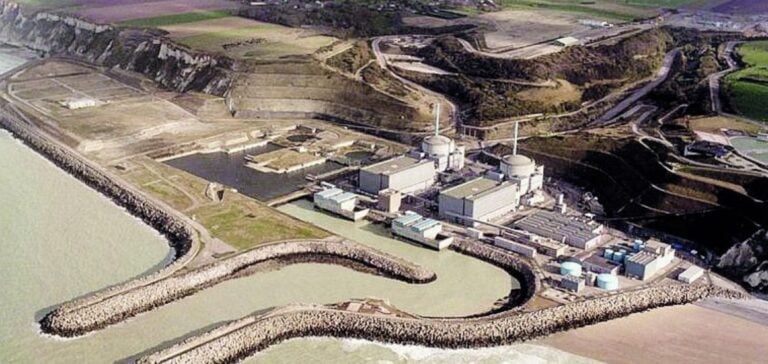President Emmanuel Macron’s announcement of the construction of eight new nuclear reactors marks a decisive step in France’s energy policy. This decision, announced at a recent press conference, aims to accelerate the energy transition by reducing dependence on fossil fuels.
An Ambitious Nuclear Program
Emmanuel Macron had already initiated an ambitious program in February 2022, before the start of the conflict in Ukraine, to extend the life of existing reactors and build six new EPR2-type reactors. These first reactors should be operational by 2035-2037. The current announcement adds a further eight reactors to this plan, underlining the importance of nuclear power in the national energy strategy.
This decision comes against a backdrop of renewal of France’s nuclear fleet, which is crucial to meeting carbon emission reduction targets and guaranteeing energy independence. Energy transition has become a priority for France, especially after the surprise dissolution of the National Assembly and the recent results of the European elections.
Challenges and opportunities for the nuclear industry
The French Minister of the Economy, Bruno Le Maire, recently underlined the enormous challenges that this project represents for the French nuclear industry. During a Senate inquiry, he recalled the ups and downs of the industry, which has lost critical skills and now needs to rebuild. The completion of the first six EPR2s will serve as a test of France’s ability to successfully complete this vast program.
EDF, the incumbent electric utility, has already received the go-ahead for preparatory work on the first two EPR2 plants at Penly (Seine-Maritime). Additional reactors are planned for Gravelines and the Bugey site, although the locations of the eight new reactors have not yet been determined. The success of this program will depend on the industry’s ability to meet deadlines and costs, while guaranteeing high standards of safety and performance.
Impact on Energy Transition
The addition of eight nuclear reactors represents a significant step towards cleaner, more sustainable energy. By diversifying its energy sources, France aims to reduce its dependence on fossil fuels, thereby helping to combat climate change. Nuclear power, with its low CO2 emissions, plays a central role in this strategy.
Investment in nuclear power is also seen as a way of revitalizing the industry and creating highly-skilled jobs. This initiative could position France as a world leader in nuclear energy, while strengthening national energy security.
The nuclear revival program is ambitious and complex, requiring close coordination between the government, EDF and all the players in the industry. The success of this project will depend on an ongoing commitment to training skills, investing in research and maintaining high standards of safety and innovation.






















